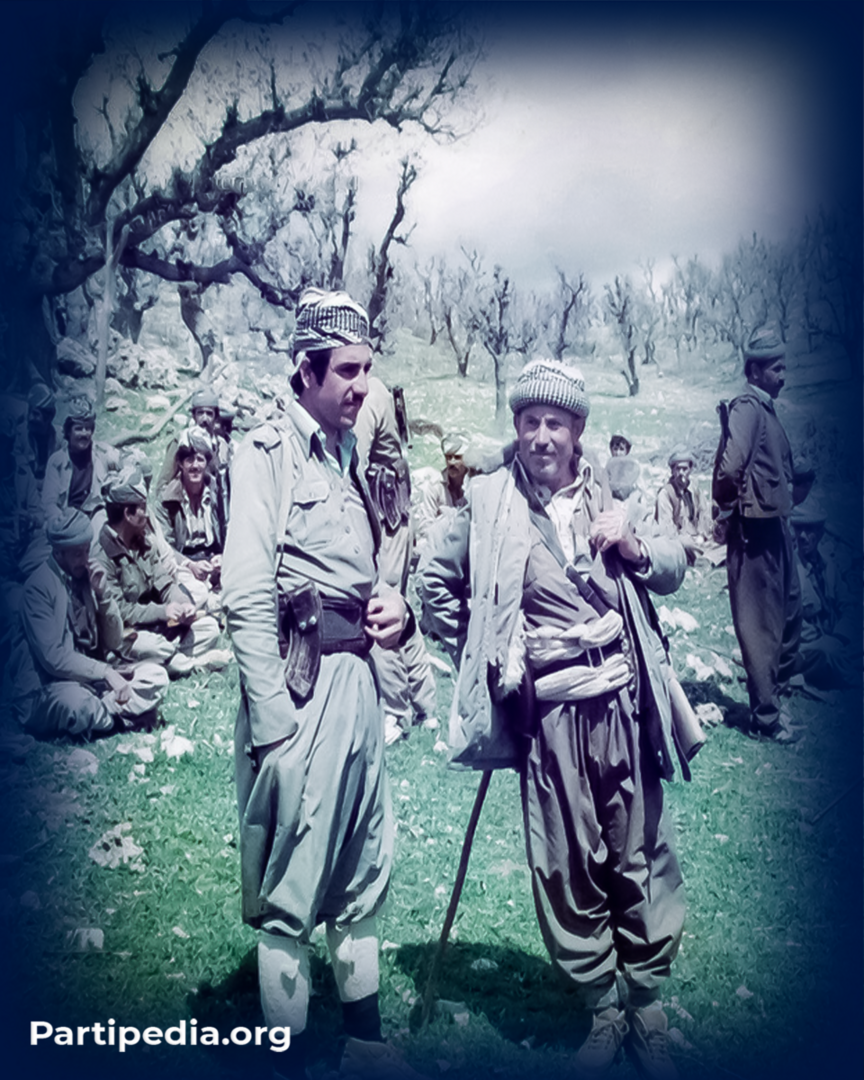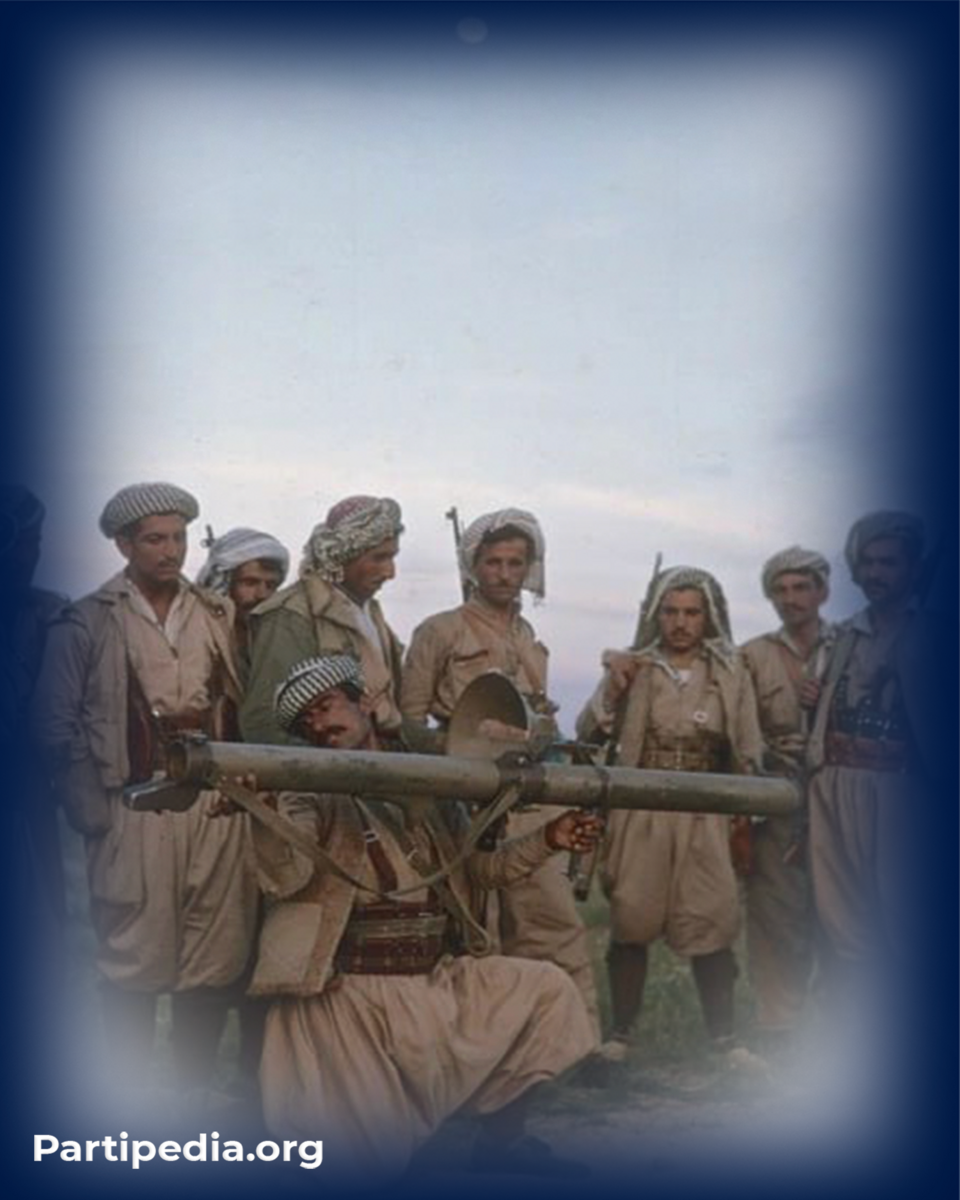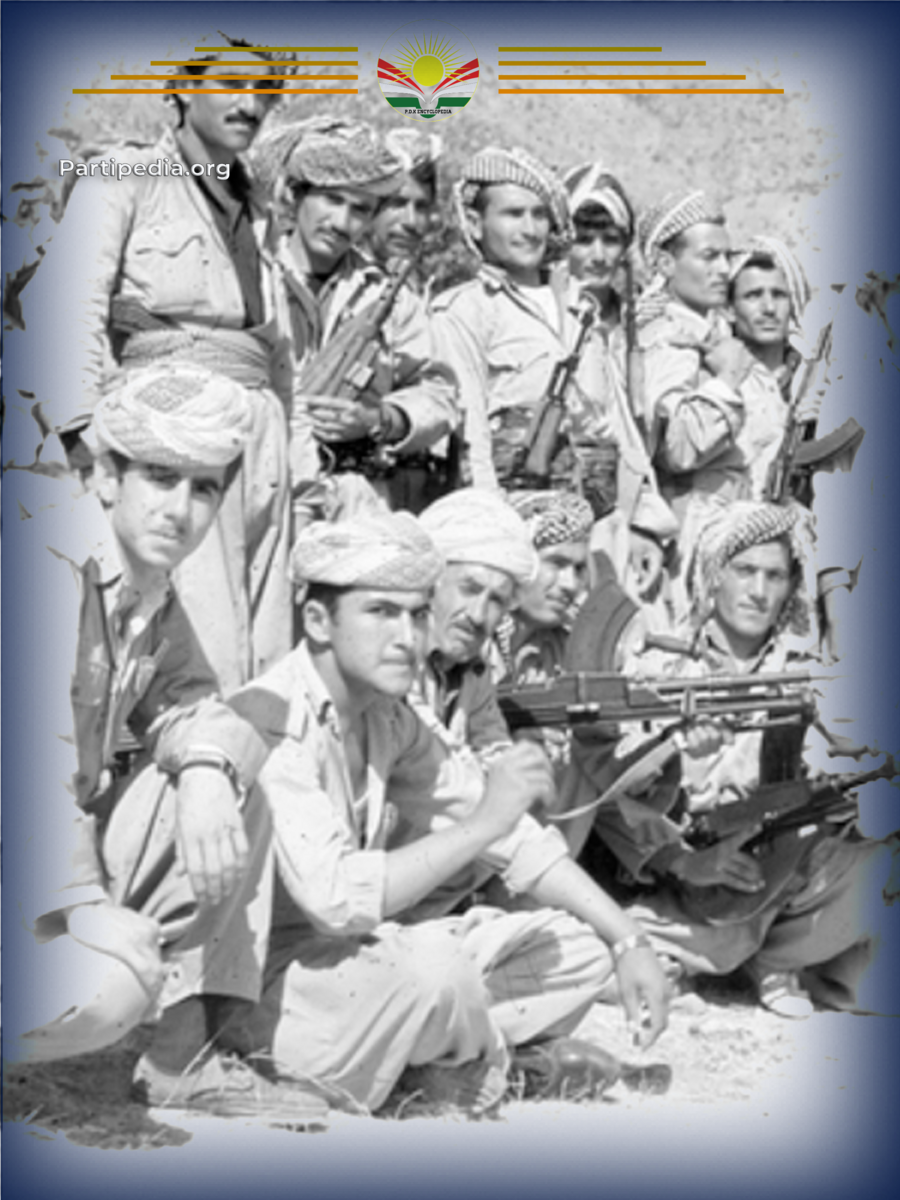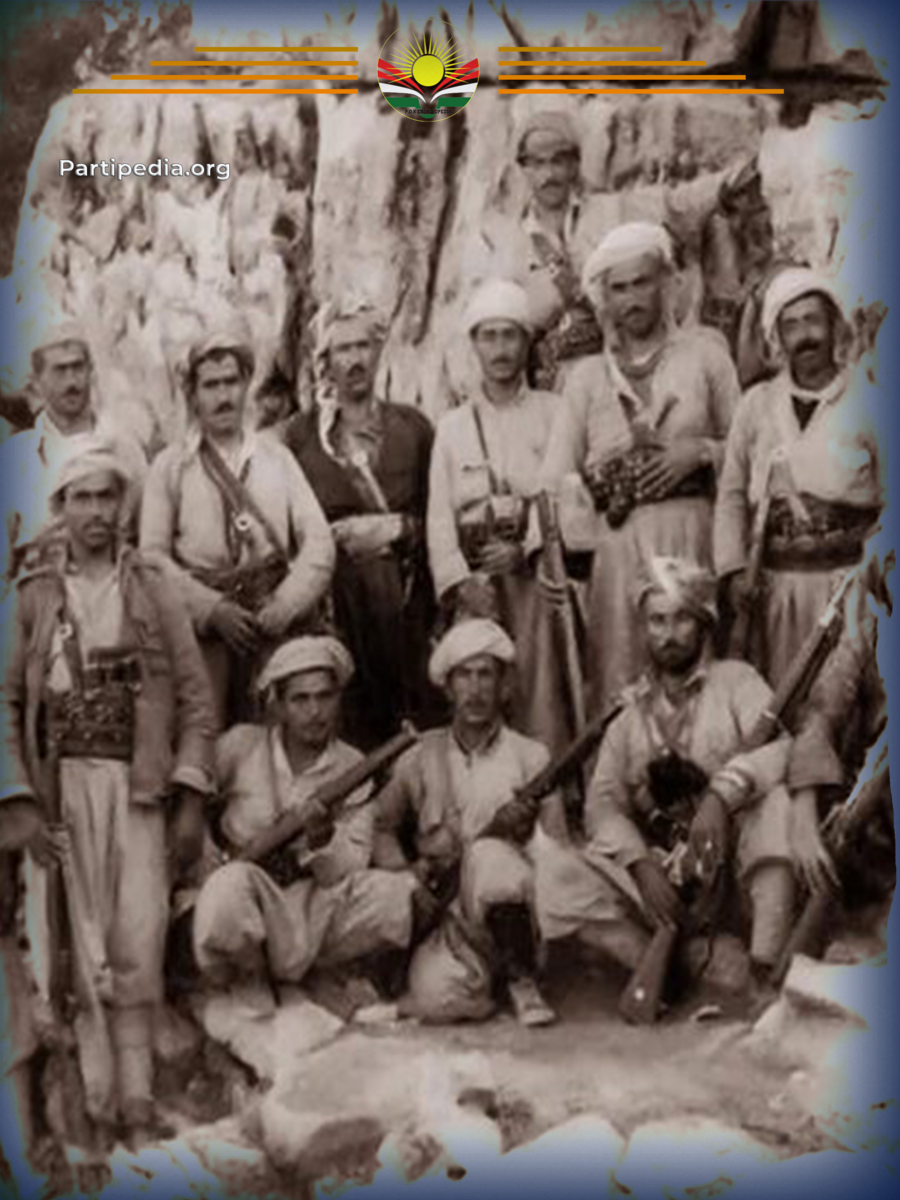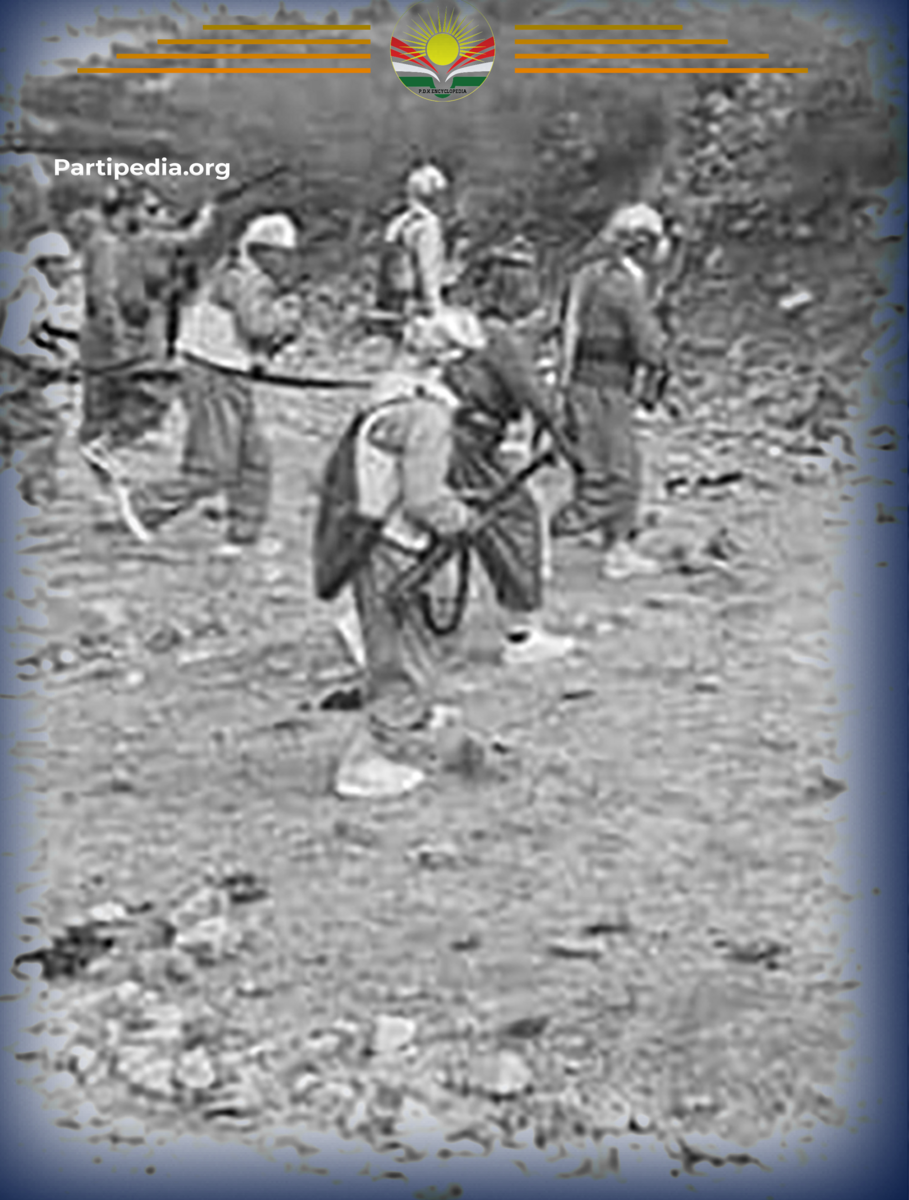In December of 1988, a gathering took place at the first branch of the Kurdistan Democratic Party (KDP) in the Badinan area to deliberate on a strategy overseen by Ramzi Shaban, the branch's leader, along with committee heads from Amedi, Sheikhan, Zakho, Gulan, Duhok, and Akre. During this period, President Massoud Barzani was the leader of the revolution in the first branch. During the gathering, different perspectives were exchanged to decide on the location for the mission. Based on the prevailing sentiment, Dereluk and Sheladze were singled out as the intended targets of the offensive. Also, it is noteworthy that the Peshmerga forces were structured into branches, regions, and organizations during the Gulan Revolution.
The strategy for the assault involved the coordinated efforts of the Peshmerga forces from all six regions, along with a specialized branch force, launching a two-pronged attack. The first group aimed to target Dereluk, where two battalions of mercenaries (Jash) were stationed, while simultaneously severing the main road leading to Dereluk. Furthermore, the second group was to attack the enemy checkpoints in Nzari Derelok and Dashta Ze in Akre area, where 20 enemy checkpoints had dominated the armed regiments in Derelok to protect them. Additionally, the Sheladze community, serving as a hub for mercenaries, was to be bombarded in order to divert their attention.
Ramzi Shaban, Shukri Nerwayi, and Tamar Kochar spearheaded the first, assuming command over the Amedi, Gulan, and Zakho forces. On the other hand, Shimal Zebari took charge of the second group along with the head of the regions and organizations, and entrusting the Sheikhan, Akre, and Duhok forces with their responsibilities.
As per the scheduled arrangement, on the night of December 11-12, 1988, the Kurdistan Peshmerga Forces initiated a significant assault on the positions, checkpoints, and headquarters of the Ba'ath regime. During this operation, the Peshmerga forces successfully secured significant wins by seizing 112 positions and bases held by government forces in Nizar, Sar-e-Qolke, Kane, Derelok, and Sheladze, inflicting substantial damage on the Iraqi forces. After successfully seizing control of the neighboring areas, the Peshmerga forces made significant progress by advancing towards the heart of Dereluk town and successfully capturing it.
The Peshmerga now had full control over all the key institutions within the town, including the headquarters of Ahmad Kalhi Rekani battalion and Ali Abo, who held a prominent position within the mercenary groups. Additionally, they took charge of the Ba'ath Party headquarters, the security and intelligence organization, the local police station, and the district office. Despite some resistance from the intelligence agency's mercenaries, their defense proved futile and they were unable to maintain control for an extended period of time.
Throughout the harsh winter, the conflict persisted until the 13th of this month, when the Peshmerga successfully seized full control of Dereluk. This victory resulted in the Peshmerga gaining authority over all government establishments in the area, including the two bridges connecting Amedi and Dereluk - Sheladze.
On December 14, 1988, in light of the substantial snowfall and numerous obstacles, a decision was made to withdraw and devise a comprehensive military strategy to effectively counter any potential counterattack. Additionally, they strategically seized crucial positions during the retreat.
The Outcome of the Battle
The Peshmerga seized control of four regiments along with the headquarters of Ali Abo, Mohammed Kalhe Rekani, and Kazim Omar Khan. Over 550 government fighters were captured, while more than 200 soldiers and a significant number of fighters lost their lives. In Dereluk, 53 members of the Ba'athist security and intelligence services were eliminated. Additionally, 17 military vehicles were destroyed, and the Peshmerga successfully thwarted over five attacks by government forces. Sadly, the Peshmerga forces mourned the loss of 12 martyrs and 27 wounded soldiers during this intense battle.
The Achievements of the Revolution
The revolution's successes encompassed seizing 2 armored vehicles, 3 14.5mm and 12.5mm machine guns, over 1,000 Kalashnikovs, 47 Brno weapons, 10 BKCs, 20 RPGs 9 (RBK), numerous 60mm and 120mm mortars and various military equipment and alliances.
The Iraqi Government’s Response:
Following the assault, the government responded with a strong stance, implementing measures against the affected region. These measures included imposing restrictions on food supplies to the villages and persistently subjecting them to bombardment using long-range artillery and aircraft.
Sources:
١- شیمال زێباری، هندەك ڕاستیێن ڤهشارتی د شۆڕشا گولانێدا، چاپی یهكهم، چاپخانهی ڕۆژههڵات، ههولێر – 2015.
٢-مهسعود بارزانی: بارزانی و بزوتنهوەی ڕزگاریخوازی كورد، بهرگی چوارم، 1975-1990 شۆڕشی گوڵان، بهشی دووەم، چاپی یهكهم، چاپخانهی ڕوكسانا، 2021.
٣-غازى عادل گەردی، پێمەرگەیەک لە خزمەت ڕێبازى بارزانیدا حەجى بیڕۆخى بەرگى دووەم، چاپى دووەم، تورکیا- ٢٠٢١.




